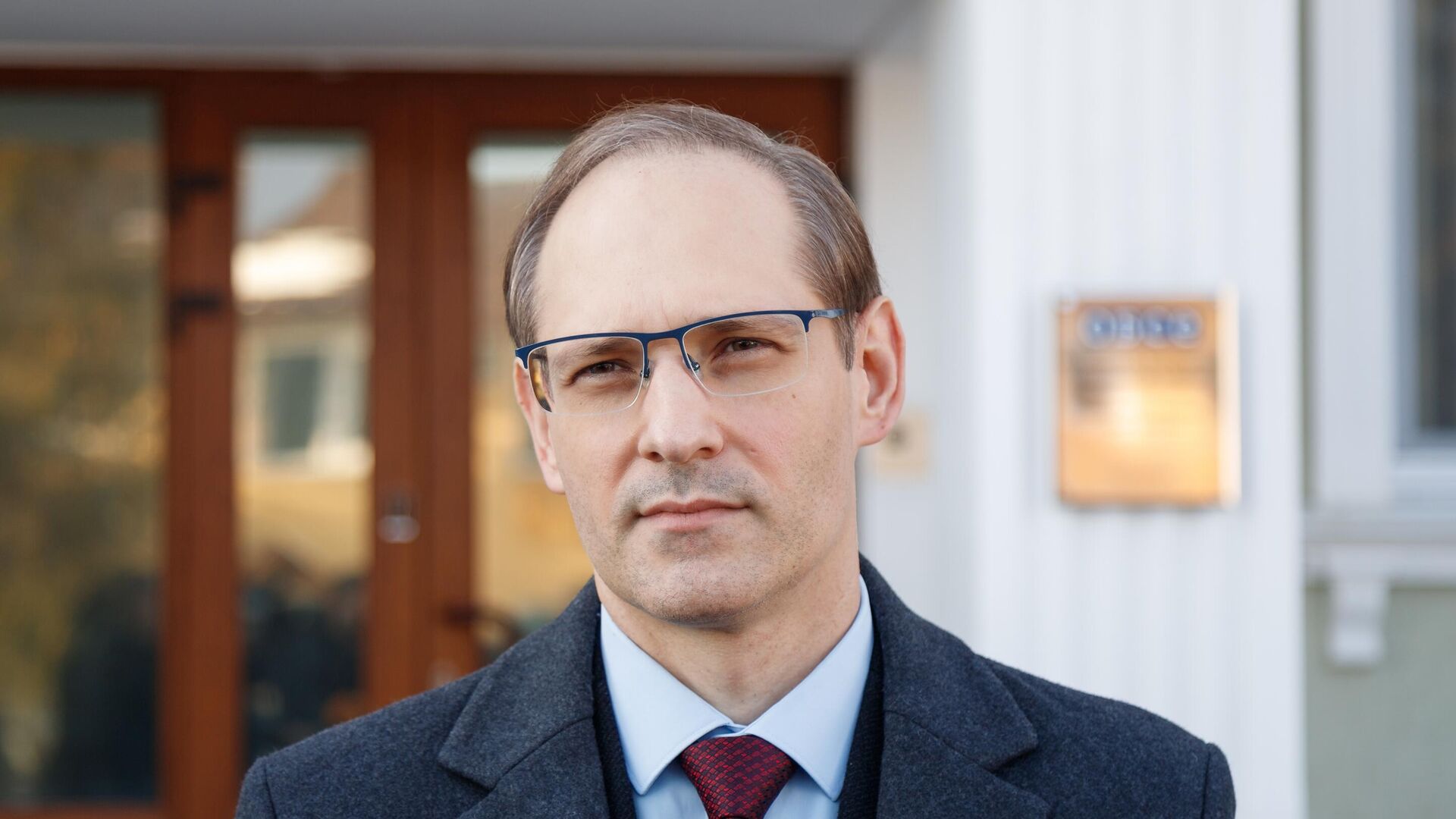Chisinau's Expulsion of Russian Diplomats Worsens Moldova-Transnistria Dialogue

© Sputnik . Artem Kulekin
/ Subscribe
TIRASPOL (Sputnik) - On March 31, the Moldovan Foreign Ministry declared three members of the Russian diplomatic mission in Chisinau personae non gratae under the pretext of their alleged involvement in activities incompatible with their diplomatic status.
The expulsion of Russian diplomats from Moldova complicates interaction and worsens the atmosphere of dialogue between Chisinau and Tiraspol, Transnistrian Foreign Minister Vitaly Ignatiev told Sputnik.
"Such steps certainly complicate interaction and worsen the atmosphere of dialogue. It is important to understand that the peacekeeping operation is the main and most effective mechanism for maintaining peace and security on the Dniester, which has proven its high functional stability over 33 years," Ignatiev said.
Transnistria expects the European Union to encourage Chisinau to negotiate with Tiraspol rather than promote the militarization of Moldova, Transnistrian Foreign Minister Vitaly Ignatiev told RIA Novosti.
"We expect that sooner or later the European Union will realize that in order to achieve a sustainable settlement, it is much more effective to encourage responsible behavior of Chisinau in the negotiation process and promote the development of practical solutions in the interests of the population rather than to promote the militarization of the Republic of Moldova, which according to its constitution should be a neutral state," Ignatiev said in an interview.
The minister recalled that the EU participates in the 5+2 international negotiating format as an observer. The EU's functionality is clearly defined by the 2005 document on the rights and obligations of observers, which provides for the promotion of a political settlement by exclusively peaceful means, Ignatiev said.
"The EU has a significant influence, acting as an important trade partner for both sides, as well as a key political ally and a constant donor to Moldova, a labor market for hundreds of thousands of Moldovan citizens," the minister said.
Chisinau Using Legal Mechanisms for Political Purposes
Chisinau is increasingly using legal mechanisms for political purposes, Ignatiev told Sputnik, commenting on the situation with the arrest of the head of Moldova's autonomous region of Gagauzia Yevgenia Gutsul.
Gutsul was detained at the Chisinau airport on March 25. A Chisinau court arrested her for 20 days on charges of violating rules for campaign financing and document forgery. On April 9, the court placed Gutsul under house arrest for 30 days. On April 17, The Chisinau Court of Appeal rejected the request of Gutsul’s defense and left the politician under house arrest.
"The current situation in neighboring Moldova, in particular in Gagauzia, confirms the validity of our concerns about the increasing use of legal mechanisms for political purposes. We critically evaluate the emerging risks and, as realists, cannot ignore them," Ignatiev said.
The lawmaker recalled the anti-democratic amendments made to Moldova’s criminal law, which includes a "law on separatism" and other repressive measures. These amendments prevent Transnistrian officials holding meetings in Moldova, as well as disrupts the atmosphere of trust and becomes an obstacle to dialogue, he said.
For Chisinau, such norms serve as a pretext for avoiding their formal duties in the negotiation process and direct interaction with Tiraspol, Ignatiev added.
In February 2023, the Moldovan parliament passed amendments to the Criminal code introducing penalties for "separatism," "plotting against Moldova" and other similar crimes. The Transnistrian Foreign Ministry said that such steps disrupted the negotiation process in the Transnistrian settlement.
Transnistria, where Russians and Ukrainians make up 60% of the population, sought to secede from Moldova even before the collapse of the Soviet Union, fearing that Moldova would join Romania amid a wave of nationalism. In 1992, after an unsuccessful attempt by Moldovan authorities to resolve the issue by force, Transnistria became a de facto territory outside Chisinau’s control.
